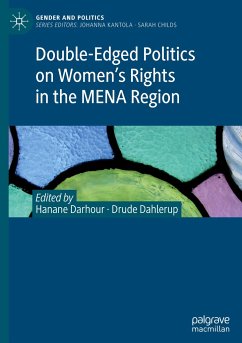
Europe's Last Dictatorship - U.S. Democratization Efforts in Belarus

PAYBACK Punkte
0 °P sammeln!
Seminar paper from the year 2006 in the subject Politics - Miscellaneous, grade: 2,0, Durham University, language: English, abstract: [...] Since its official establishment in 1991, Belarus has struggled with the implementation ofdemocratic policies. The republic is a nominal democracy and was pursuing liberal reforms aftergaining independence, however, since his election in 1994, its current president AlyaksandarLukashenka, was repeatedly able to expand his almost autocratic powers. The fact that most othercountries in Eastern Europe have democratized more or less like textbook examples makes...
Seminar paper from the year 2006 in the subject Politics - Miscellaneous, grade: 2,0, Durham University, language: English, abstract: [...] Since its official establishment in 1991, Belarus has struggled with the implementation ofdemocratic policies. The republic is a nominal democracy and was pursuing liberal reforms aftergaining independence, however, since his election in 1994, its current president AlyaksandarLukashenka, was repeatedly able to expand his almost autocratic powers. The fact that most othercountries in Eastern Europe have democratized more or less like textbook examples makesBelarus' autocracy a true exception. In this paper, the question will be answered whydemocratization has so far failed in post-communist Belarus.To answer this question thoroughly, it is indispensable to portrait the pre-transitionalhistory and political climate in communist Belarus (section 2.), as well as the actual transitionprocess starting in 1989 (section 3.). The research then turns to the question of how and to whatextent external actors, especially the U.S. and Europe, engaged in democratization efforts(section 4.). Eventually, the analysis of external and internal factors will answer the centralquestion of why democracy failed in Belarus (section 5.). It will be determined whetherinternational efforts have been made effectively and correctly, and also, which domestic factorsaverted a move towards democracy. The results found in this research indicate that internationalactors failed to recognize Belarus' exceptionalism among democratizing Eastern Europeancountries and therefore virtually missed the crucial period in which democratization was still apolitical possibility for Belarus. Most importantly, however, internal factors were mostsignificant in the authoritarian development of Belarus. Weak traditions of democracy, statehood, and national identity made and continue to make the Belarusian people an easy target fordictatorial rule.The evaluation of the transitional process in Belarus will be based on primary sources suchas official documents published by U.S. and European government authorities. Furthermore,press releases, scientific journal articles, news articles, and information from book chapters willcomplete the picture.













